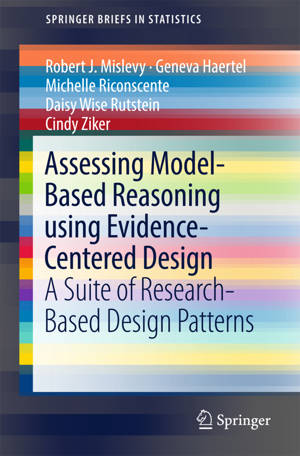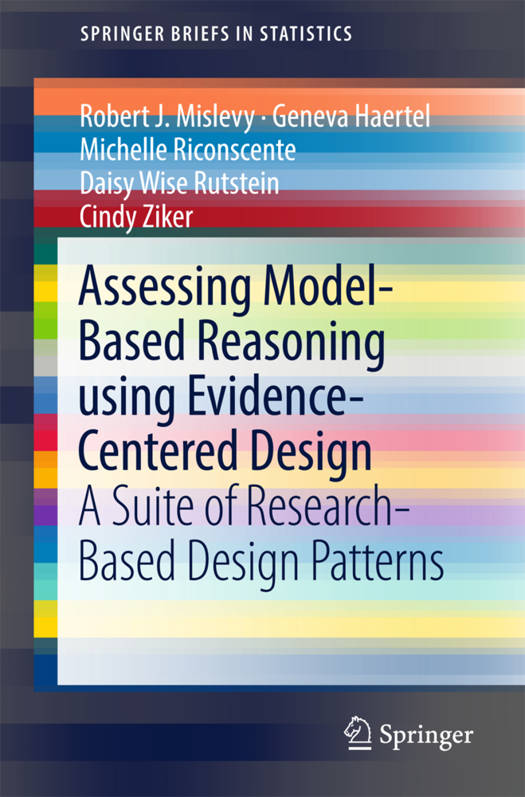
- Retrait gratuit dans votre magasin Club
- 7.000.000 titres dans notre catalogue
- Payer en toute sécurité
- Toujours un magasin près de chez vous
- Retrait gratuit dans votre magasin Club
- 7.000.0000 titres dans notre catalogue
- Payer en toute sécurité
- Toujours un magasin près de chez vous
Assessing Model-Based Reasoning Using Evidence- Centered Design
A Suite of Research-Based Design Patterns
Robert J Mislevy, Geneva Haertel, Michelle Riconscente, Daisy Wise Rutstein, Cindy ZikerDescription
This Springer Brief provides theory, practical guidance, and support tools to help designers create complex, valid assessment tasks for hard-to-measure, yet crucial, science education standards. Understanding, exploring, and interacting with the world through models characterizes science in all its branches and at all levels of education. Model-based reasoning is central to science education and thus science assessment. Current interest in developing and using models has increased with the release of the Next Generation Science Standards, which identified this as one of the eight practices of science and engineering. However, the interactive, complex, and often technology-based tasks that are needed to assess model-based reasoning in its fullest forms are difficult to develop.
Building on research in assessment, science education, and learning science, this Brief describes a suite of design patterns that can help assessment designers, researchers, and teachers create tasks for assessing aspects of model-based reasoning: Model Formation, Model Use, Model Elaboration, Model Articulation, Model Evaluation, Model Revision, and Model-Based Inquiry. Each design pattern lays out considerations concerning targeted knowledge and ways of capturing and evaluating students' work. These design patterns are available at http: //design-drk.padi.sri.com/padi/do/NodeAction?state=listNodes&NODE_TYPE=PARADIGM_TYPE. The ideas are illustrated with examples from existing assessments and the research literature.Spécifications
Parties prenantes
- Auteur(s) :
- Editeur:
Contenu
- Nombre de pages :
- 130
- Langue:
- Anglais
- Collection :
Caractéristiques
- EAN:
- 9783319522456
- Date de parution :
- 02-08-17
- Format:
- Livre broché
- Format numérique:
- Trade paperback (VS)
- Dimensions :
- 156 mm x 234 mm
- Poids :
- 217 g

Les avis
Nous publions uniquement les avis qui respectent les conditions requises. Consultez nos conditions pour les avis.






